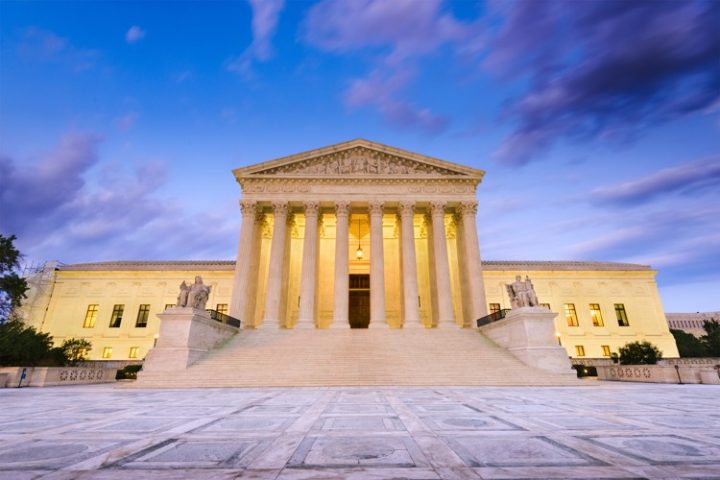
Even Frank Hamer, the legendary Texas Ranger, couldn’t protect Governor Coke Stevenson from election thief Lyndon Johnson.
In September 1948, when Stevenson, accompanied by Hamer, went to Alice, Texas, and proved Johnson swiped that year’s Democrat Senate primary runoff, the state Democrat Party still gave the victory to LBJ. Then Stevenson lost in federal court.
The lesson of the successful vote fraud is instructive as election officials count ballots in Michigan and Wisconsin, two states where Democrat Joe Biden appears to have edged President Trump in Tuesday’s election.
Cheaters can win if they’re good enough cheaters.
Johnson was.
200 Votes
The runoff was held Saturday, August 28.
A popular former governor, Stevenson was ahead of Johnson by more than 20,000 votes before precincts in San Antonio began reporting. But those would likely vote for Stevenson, too. In the election on July 24, a month before the runoff, he had beaten Johnson by 11,000 votes, reported Robert Caro in Means of Ascent, the second of his four-volume opus on the 36th president.
Though polling put Stevenson ahead, 53-47 percent, Johnson turned that deficit around.
As more precincts reported results, Stevenson’s lead dwindled to less than 1,000 votes, and while more uncounted votes magically appeared, by Tuesday, election officials had declared Stevenson the victor by a slim 349.
Yet the counting still wasn’t finished. More and more counties in the Rio Grande Valley reported “new votes” for Johnson, which cut his deficit to 157.
That still wasn’t enough to defeat Stevenson.
And so at 12:30 p.m. on Friday, September 3, Jim Wells County called in a 200-vote change that gave Johnson 494,191 to Stevenson’s 484,104.
“Out of 988,295 votes,” Caro reported, Johnson “had won by 87, less than one hundredth of one percent.”
Hamer and Stevenson Go to Alice
Stevenson wasn’t fooled. A man who taught himself bookkeeping by campfire light and caught rustlers with fast-friend Hamer, the former governor and the retired ranger, with two lawyers, traveled to Alice, Texas, about 51 miles west of Corpus Christi, to check vote tallies.
Stevenson took the right man. Hamer became a ranger in 1906, and had been wounded 17 times and twice left for dead. He stopped a dock strike in Houston by approaching the biggest striker and saying, “This strike is over.”
Worse still, at least for anyone daring enough to stand in his way, he had killed 53 men. Hamer also led the posse that tracked down and killed mass-murderers Bonnie and Clyde.
The local election chief’s pistoleros cleared a path when Hamer and Stevenson went to the bank where election records for Precinct 13 were kept. “Git,” Hamer told one band of five. “Fall back!” he ordered the second larger group blocking the bank’s door. He was ready to draw the gun holstered at his side.
Inside the bank, Stevenson forced a top party official to turn over the election records. They proved that Johnson’s torpedoes rigged the vote. Looking at the poll list, Caro reported, they found that the last 200 names were written in alphabetical order — in the same handwriting.
In reporting the final tally for the precinct’s reported 965 votes, one of Stevenson’s attorneys said, “It was evident from looking … that the 9 had been changed.”
Said the attorney:
It previously had been a 7.… The 7 had been worked over in pen and ink from a 7 around to a 9.… An additional loop [had been] to the 7 to make a 9 out of it.
Afterward, a Mexican-American in the precinct explained something for Stevenson’s attorneys: “People live longer down here if they keep their mouths shut.”
A Loss in Court
Though Stevenson had the proof he needed to show Johnson’s fraud, on September 13, the state Democrat committee voted to declare Johnson the winner by one vote, 29-28.
Stevenson took the case to federal court and lost. Johnson’s attorney, future U.S. Supreme Court Justice Abe Fortas, successfully argued to Associate Justice Hugo Black, then in charge of the U.S. Fifth Circuit Court of Appeals, that primaries were “irrevocably and incontestably vested” in Texas law.
Black agreed, and the Supreme Court upheld his ruling.
Whether the High Court will validate any Democrat fraud Trump uncovers remains to be seen.



